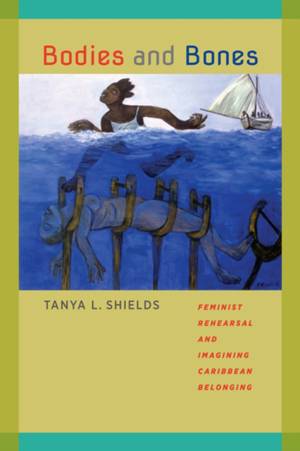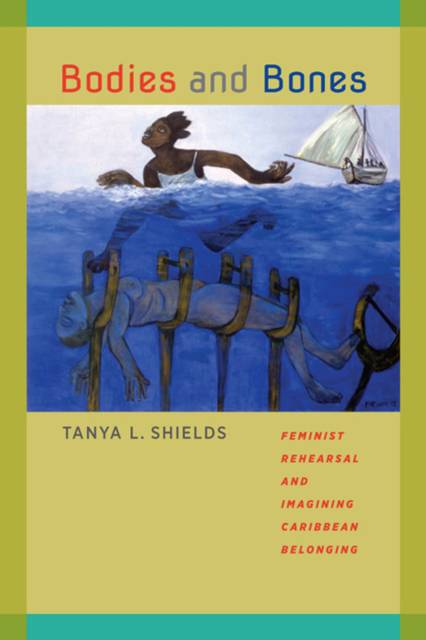
- Retrait gratuit dans votre magasin Club
- 7.000.000 titres dans notre catalogue
- Payer en toute sécurité
- Toujours un magasin près de chez vous
- Retrait gratuit dans votre magasin Club
- 7.000.000 titres dans notre catalogue
- Payer en toute sécurité
- Toujours un magasin près de chez vous
Description
In Bodies and Bones, Tanya Shields argues that a repeated engagement with the Caribbean's iconic and historic touchstones offers a new sense of (inter)national belonging that brings an alternative and dynamic vision to the gendered legacy of brutality against black bodies, flesh, and bone. Using a distinctive methodology she calls "feminist rehearsal" to chart the Caribbean's multiple and contradictory accounts of historical events, the author highlights the gendered and emergent connections between art, history, and belonging.
By drawing on a significant range of genres--novels, short stories, poetry, plays, public statuary, and painting--Shields proposes innovative interpretations of the work of Grace Nichols, Pauline Melville, Fred D'Aguiar, Alejo Carpentier, Edwidge Danticat, Aimé Césaire, Marie-Hélène Cauvin, and Rose Marie Desruisseau. She shows how empathetic alliances can challenge both hierarchical institutions and regressive nationalisms and facilitate more democratic interaction.
Spécifications
Parties prenantes
- Auteur(s) :
- Editeur:
Contenu
- Nombre de pages :
- 248
- Langue:
- Anglais
- Collection :
Caractéristiques
- EAN:
- 9780813935966
- Date de parution :
- 02-06-14
- Format:
- Livre relié
- Format numérique:
- Genaaid
- Dimensions :
- 161 mm x 236 mm
- Poids :
- 480 g







